| Country | Student fee |
|---|---|
Austria 2013/14 - student fees and grants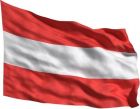 |
EU students and those who are accorded the same rights do not have to pay tuition fees.
Austrian students, EU students and students with equal status at universities and Pädagogische Hochschule do not have to pay fees, but if they exceed the minimum study duration for more than a year, they have to pay EUR 363.36 per semester. All other students at Pädagogische Hochschule have to pay fees (EUR 363.36 per semester). Students at universities and Pädagogische Hochschule can be exempt from paying in cases such as studies or internships within transnational mobility programmes, illness, pregnancy and disabilities. International students (i.e. non-EU and EEC students) at universities have to pay fees of EUR 726.72 per semester, with the exception of students from the least developed countries. Students from developing countries may be exempt from the fees according to a respective decision of the university. Providers of the Fachhochschulen (universities of applied sciences) are entitled to charge fees up to the maximum amount of EUR 363.36 per semester. Additionally, the providers are entitled to charge cost-covering fees, which are usually higher than EUR 363.36 per semester, from third-country students. |
Austria 2015/16 - student fees and grants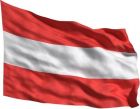 | EU students and those who are accorded the same rights do not have to pay tuition fees, and there are also no administrative fees. Austrian students, EU students and students with equal status at universities and Pädagogische Hochschule (University Colleges of Teacher Education) do not have to pay fees, but if they exceed the minimum study duration by more than a year, they have to pay EUR 363.36 per semester. Other students at Pädagogische Hochschule (University Colleges of Teacher Education) have to pay fees of EUR 363.36 per semester. Students at universities and Pädagogische Hochschule (University Colleges of Teacher Education) can be exempt from paying in cases such as studies or internships within transnational mobility programmes, illness and pregnancy. Students with disabilities may also be exempt. International students (i.e. non-EU and EEC students) at universities generally have to pay fees of EUR 726.72 per semester. Students from developing countries may be exempt from these fees according to a decision of the university. Providers of the Fachhochschulen (universities of applied sciences) are entitled to charge fees up to the maximum amount of EUR 363.36 per semester. In the case of international students (i.e. non-EU and EEC students) the providers are entitled to charge cost-covering fees, which are usually higher than EUR 363.36 per semester. |
Austria 2016/17 - student fees and grants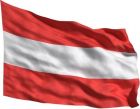 | EU students and those who are accorded the same rights do not have to pay tuition fees at universities and
Pädagogische Hochschule (University Colleges of Teacher Education). There are also no administrative fees. In
case students exceed the maximum study duration by more than a year, they have to pay EUR 363.36 per
semester. Exemption from fees may be given in cases such as studies or internships within transnational mobility
programmes, illness and pregnancy, to students with disabilities.
Fachhochschulen (universities of applied sciences) are entitled to charge fees up to the maximum amount of EUR 363.36 per semester. There is no short cycle programme in higher education in Austria. International students (i.e. non-EU and EEA students) at universities generally have to pay fees of EUR 726.72 per semester. Students from developing countries may be exempt from these fees according to a decision of the university. Students from the least developed countries are exempt from fees. Fachhochschulen are entitled to charge cost-covering fees, which are usually higher than EUR 363.36 per semester on non-EU and EEA students. |
Belgium - flemish 2013/14 - student fees and grants |
A fixed registration fee of EUR 66.50 is paid at the beginning of an academic year. In addition, students pay the flexible tuition fee according to a number of ECTS credits followed. Each credit point carries a fee of EUR 9.10. The amount of fees varies with the income of the student and the type of study programme. If a student is eligible for a grant, the maximum payable fee amount is EUR 80. Non-EU students may be requested to pay higher tuition fees. |
Belgium - flemish 2015/16 - student fees and grants | The student fee has two components: a fixed amount of EUR 230 and a flexible part that differs with the number of ECTS credits followed. Each credit point carries a fee of EUR 11. This means that for a full time student (60 ECTS points) the total fee is EUR 890. The amount of fees varies with the income of (the parents of) the student. If a student is eligible for a grant, (s)he pays only EUR 105 per academic year. An intermediate tariff of EUR 470 applies for students who are almost on a grant (i.e. almost meet the income criteria linked to a need-based grant). Fees for non-EU students are determined by the governing board of higher education institutions, and may be higher than for EU students. |
Belgium - flemish 2016/17 - student fees and grants | The student fee in the first and the second cycles has two components: a fixed amount of EUR 230 and a flexible
part that differs with the number of ECTS credits followed. Each credit point carries a fee of EUR 11. This means
that on average for a full-time student (60 ECTS points) the total fee is EUR 890. The amount of fees varies with
the income of (the parents of) the student. Students who are eligible for a grant pay EUR 105 per academic year.
An intermediate tariff of EUR 470 applies for students who almost meet the income criteria linked to a need-based
grant. The amount of the tuition fees is fixed in the law (Codex Hoger Onderwijs). Students pay fees at the
beginning of the academic year, when they register for the programme.
For short-cycle tertiary programmes, the maximum tuition fee of EUR 1.50 per teaching hour is determined by the Flemish Government. Payment is made at registration. Some students (for example unemployed or students with special needs) pay no fees, a fee of EUR 0.30 per teaching hour or a fee of EUR 0.60 per teaching hour. There are no tuition fees for the associate degree programme for nursing. Fees for non-EU students which may be higher than for EU students are determined by higher education institutions. |
Belgium - french 2013/14 - student fees and grants |
Fee limits are set by the government of the French Community of Belgium. Fee levels depend on the student's financial situation. For academic year 2013/14, the maximum fee is EUR 837, the intermediate fee is EUR 374 (for students not receiving a grant but considered as lower income) and there are no fees for those students receiving a grant. There are some differences in fees between universities and non-university higher education institutions. Until 2017 non- university higher education institutions can charge complementary registration and administrative fees in addition to registration fees, but the total amount cannot exceed EUR 837/year. Those complementary registration and administrative fees range from EUR 0 (for grant holders) to EUR 179 depending on the type of programme and the financial situation of students; they apply to all students. Those fees will continuously decrease till 2017 when they will cease to exist. Students from outside the EU have to pay additional specific fees. For programmes organised by university colleges and arts colleges, the additional specific fees (droits d'inscription spécifiques) are fixed by law: EUR 992 for professional- oriented programmes and EUR 1 487 for academic-oriented programmes of 1st cycle; EUR 1 984 for programmes of 2nd cycle. For programmes organised by universities, it is fixed by law that the maximal amount should not exceed 5 times the registration fees. In practice, universities (through the Interuniversity Council) have adopted harmonised amounts. Those amounts differ depending on the country of origin of the students (1). The complementary registration and administrative fees mentioned in the previous bullet remain applicable to non-EU students. |
Belgium - french 2015/16 - student fees and grants | Fee limits are set by the government of the French Community of Belgium. Fee levels depend on the student's financial situation. For the academic year 2015/16, the maximum fee is EUR 836, the intermediate fee is EUR 374 (for students not receiving a grant but considered as lower income) and there are no fees for those students receiving a grant. There are some differences in fees between universities and non-university higher education institutions. Until 2017 nonuniversity higher education institutions can charge complementary registration and administrative fees in addition to registration fees, but the total amount cannot exceed EUR 836/year. Those complementary registration and administrative fees range from EUR 0 (for grant holders) to EUR 179 depending on the type of programme and the financial situation of students; they apply to all students. These fees will continuously decrease until 2017 when they will cease to exist. Students from outside the EU have to pay additional specific fees. For programmes organised by university colleges and arts colleges, the additional specific fees (droits d’inscription spécifiques) are fixed by law: EUR 992 for professionaloriented programmes and EUR 1 487 for academic-oriented programmes in the 1st cycle; EUR 1 984 for programmes of 2nd cycle. For programmes organised by universities, the law stipulates that the maximum amount should not exceed 5 times the registration fees. In practice, universities (through the Interuniversity Council) adopted harmonised amounts. Those amounts differ depending on the country of origin of the students (2). The complementary registration and administrative fees mentioned in the previous bullet remain applicable to non-EU students. (2) Exact amounts are available here: http://www.ulb.ac.be/enseignements/inscriptions/frais-etudes.html |
Belgium - french 2016/17 - student fees and grants | Fee limits, set by the government of the French Community of Belgium, depend on the student's financial situation. The
maximum fee in short, first and second cycle programmes is EUR 836. Fees are not charged to students receiving a
grant, while students not receiving a grant but considered as lower income pay an intermediate fee.
There are some differences between university and non-university higher education institutions. 2016/17 is the last academic year when non-university higher education institutions can charge complementary registration and administrative fees in addition to registration fees, but the total amount cannot exceed EUR 836/year. Complementary registration and administrative fees range from EUR 0 (for grant holders) to EUR 179 depending on the type of programme and the financial situation of students and apply to all students. Non-EU students have to pay additional specific fees (droits d’inscription spécifiques). For programmes organised by university colleges and arts colleges, they are fixed by law: EUR 992 for professional programmes and EUR 1 487 for academic programmes in the 1st cycle; EUR 1 984 for 2nd cycle programmes. For university programmes, the law stipulates that the maximum amount should not exceed 5 times the registration fees. In practice, universities (through the Interuniversity Council) adopted harmonised amounts depending on the country of origin of the students ( 1 ). Non-EU students also pay the complementary registration and administrative fees. |
Belgium - german 2013/14 - student fees and grants | Higher education provision exists only at ISCED 5B level. All students have to pay fees at registration. Amounts range in theory from EUR 100 to 600. In practice nearly all students pay the same amount of EUR 425. |
Belgium - german 2015/16 - student fees and grants | Higher education provision exists only at ISCED 5B level. All students have to pay fees at registration. Amounts range in theory from EUR 100 to 600. In practice, nearly all students pay the same amount of EUR 450.There is no distinction made between full and part-time students. Students from outside the European Union pay the same fees as Belgian and EU nationals. |
Belgium - german 2016/17 - student fees and grants | Higher education provision exists only at the first cycle. All students have to pay fees at registration. Amounts
range in theory from EUR 100 to 600. In practice, all students pay the same amount of EUR 450.
There is no short or second cycle programme in the German-speaking Community of Belgium. Students from outside the European Union pay the same fees as Belgian and EU nationals. |
Bosnia and Herzegovina 2016/17 - student fees and grants | There are two basic types of financial status for students: budget-financed and self-financed. 50 % of full-time
students at the eight public universities and two other higher education institutions of Bosnia and Herzegovina are
'budget-financed students'. They are selected based on their good performance at secondary school and at the
entrance exam. Their tuition fees are paid by the responsible ministry of education, but students need to pay
administrative and other fees (entrance and application fees, fees for issuing diploma and diploma supplement,
etc.) ranging from BAM 94 to BAM 500.
50 % of full-time students at the universities pay tuition fees. Fees vary from faculty to faculty. These students also pay both administrative and tuition fees. The minimum annual fee for self-financing students in the first cycle is BAM 440 and the maximum is BAM 1 500, plus administrative fees. The most common annual fee in the first cycle is BAM 660. In the second cycle, annual fees range from BAM 440 to BAM 4 000. All 2nd cycle students pay tuition and administration fees. All part-time students (40 % of all students) pay tuition and administrative fees. In the 1st cycle, annual fees range from BAM 900 to 4 500; and in the 2nd cycle from BAM 1 000 to 3 000. There are no short cycle programmes in higher education institutions in Bosnia and Herzegovina. International students may pay higher tuition fees while other expenses are the same. |
Bulgaria 2013/14 - student fees and grants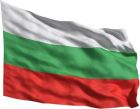 |
Public higher education institutions define their own fees, but maximum amounts are set by the government. Student fees depend on the programme and field of study. The lowest fees are paid in the following fields of study: pedagogy, economics, administration and management. The first cycle fees in the state universities for full-time studies range from BGN 300 to BGN 1 450 and for part-time studies from BGN 115 to BGN 980. he second cycle fees for full-time studies range from BGN 300 to BGN 1 550 and for part-time studies from BGN 115 to BGN 1 000. Certain categories of students are exempted from paying fees. They include orphans, persons with disabilities, war invalids and senior cadets in military schools. Fees of international students are subject to different rules. |
Bulgaria 2015/16 - student fees and grants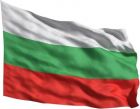 | Public higher education institutions define their own fees, but maximum amounts are set by the government. Student fees depend on the programme and field of study. The lowest fees are paid in social sciences, economics and law. The first cycle fees in the state universities for full-time studies range from BGN 300 to BGN 1 450 per year and for part-time studies from BGN 115 to BGN 1 000. Annual second cycle fees for full-time studies range from BGN 300 to BGN 1 550 and for part-time studies from BGN 115 to BGN 1 000. Certain categories of students are exempted from paying fees. They include orphans, persons with disabilities, war invalids and senior cadets in military schools. Fees of international students are subject to different rules and are generally higher than those paid by Bulgarian students. |
Bulgaria 2016/17 - student fees and grants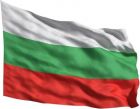 | Public higher education institutions define their own fees, but maximum amounts are set annually by the
government.
Student fees depend on the programme and field of study. The lowest fees are paid, for example, in social sciences, economics and law, the highest fees in arts, navigation programmes. The first cycle fees in the state universities, for full-time studies, range from BGN 300 to BGN 1 500 per year and for part-time studies from BGN 150 to BGN 1 100. Annual second cycle full-time study fees range from BGN 460 to BGN 1 050, and for part-time studies from BGN 370 to BGN 580. Full-time short cycle students pay from BGN 300 to BGN 1 600 per year, while part-time students between BGN 150 and BGN 1 000. Certain categories of students are exempted from paying fees. They include orphans, persons with disabilities, war invalids and senior cadets in military schools. Fee ranges for international students are also set by the government and depend on the study field. The actual amounts are defined by higher education institutions. They are usually higher than those paid by EU students. |
Croatia 2013/14 - student fees and grants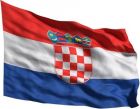 |
Fees for all students of the first year of both cycles are fully covered by the Ministry of Science, Education and Sports. In the following years of study, the amount of student fees depends on a range of criteria set by the individual higher education institutions (e.g. number of ECTS credits and fulfilment of particular study obligations). For some students fees are paid by government, some students pay a certain share of the fee, and some pay the full amount of the fee. [In the academic year 2012/13, full tuition fees were covered by the government for 38 % of students, while 61 % of students participated in fees to some extent]. The fees in both cycles range from HRK 5 000 till 10 000 per year. At bachelor level, 25 % of total number of students (counting all students in all three years, including the ones of the first year who do not pay anything) pay some participation in the fees. At master level the corresponding percentage is 20 %. |
Croatia 2015/16 - student fees and grants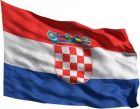 | Fees for all full-time students of the first year of both cycles are fully covered by the Ministry of Science, Education and Sports. In the following years of study, the amount of student fees depends on a range of criteria set by the individual higher education institutions (e.g. number of ECTS credits and fulfilment of particular study obligations). For some students fees are paid by government, some students pay a certain share of the fee, and some pay the full amount of the fee. [In the academic year 2014/15, full fees were covered by the government for about 40 % of students, while about 60 % of students participated in fees to some extent. The fees in both cycles range from HRK 5 000 to 10 000 per year. Part time students pay full fees. International students from outside the EU pay fees that are determined by higher education institutions, with maximum amounts regulated. |
Croatia 2016/17 - student fees and grants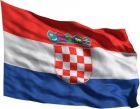 | Fees for all full-time students in the first year of short, first and second cycle programmes are fully covered by the
Ministry of Science, Education and Sports. Fees are also covered in full for all non-first year students who
achieved 55 ECTS or more in previous academic year.
Full-time students who do not fulfil the criteria for fee-exemption pay either full fee or part of the fee, depending on the criteria set by the individual HEIs. The share of fee-paying students has been roughly constant for the past few years: full fees are covered by the government for about 40 % of students, while about 60 % of students participate in fees to some extent. The full fees for all study programs range from HRK 3 700 to 7 500 per year. Part-time students, who make 28 % of total student population, pay full fees. International students from outside the EU also pay full fees. |
Cyprus 2013/14 - student fees and grants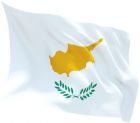 | Higher education institutions can define their own fees within limits set by the Ministry of Education and Culture.
First cycle: fees total EUR 1 709 per semester for Cypriot students and for students admitted from EU countries. These fees are paid fully by the State. International students pay fees. Fees for students admitted from non-EU countries total EUR 3 417 per semester. Second cycle: all students pay fees which range from EUR 5 125 to 10 250. |
Cyprus 2015/16 - student fees and grants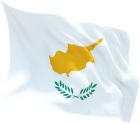 | Higher education institutions can define their own fees within limits set by the Ministry of Education and Culture. First cycle: fees total EUR 1 709 per semester (EUR 3 417 per year) for Cypriot students and for students admitted from EU countries. These fees are paid fully by the State. International students pay fees. Fees for students admitted from non-EU countries total EUR 3 417 per semester (EUR 6 834 per year). Second cycle: all students pay fees which range from EUR 4 100 to 10 250 per year. |
Cyprus 2016/17 - student fees and grants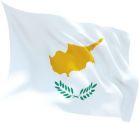 | Higher education institutions can define their own fees within limits set by the Ministry of Education and Culture.
First cycle: fees EUR 1 709 per semester (EUR 3 417 per year) for Cypriot students and for students admitted from EU countries. These fees are paid fully by the State. Second cycle: all students pay fees which range from EUR 4 100 to 10 250 per year. There is no short cycle education programme in public higher education. International students pay fees. Fees for students admitted from non-EU countries EUR 3 417 per semester (EUR 6 834 per year). |
Czech Republic 2013/14 - student fees and grants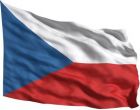 |
Fees are only related to admission procedures and need to be paid once per cycle. No tuition fees are paid by 'typical' higher education students. Students who exceed a regular length of study by at least one year have to pay fees. The fee amounts to at least CZK 7 998/academic year, based on the average cost of a student for the public budget. No maximum is set by law. Students who study in second or further degree programmes have to pay fees (maximum CZK 2 666/academic year). Students of study programmes in a foreign language also have to pay tuition fees and no maximum limit is set by law. Such arrangements are decided by each higher education institution. Fees for international students are the same as for home students. |
Czech Republic 2015/16 - student fees and grants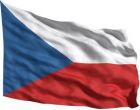 | Fees are only related to admission procedures and need to be paid once per cycle. No tuition fees are paid by 'typical' higher education students, provided that they complete their study programme in the regular timeframe. Students who exceed a regular length of study by more than one year have to pay fees. Exemptions are made for students who become parents during their studies. The fee amounts to at least CZK 8 790 /academic year, based on the average cost of a student for the public budget. No maximum is set by law. Students who study in second or further degree programmes have to pay fees (maximum CZK 2 666/academic year). Students of study programmes in a foreign language also have to pay tuition fees and no maximum limit is set by law. Such arrangements are decided by each higher education institution. Fees for international students are the same as for home students, as long as they study in the Czech language. |
Czech Republic 2016/17 - student fees and grants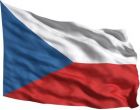 | Fees shown in the diagram are related to admission procedures and are paid once per cycle by all students. No
tuition fees are paid by higher education students, except those who exceed the regular length of study by more
than one year. Exemptions are made for students who become parents during their studies. The minimum fee is
CZK 9 651/academic year, based on the average cost of a student for the public budget set annually by the
Ministry of Education. No maximum is set by law.
Students of study programmes in a foreign language have to pay tuition fees. No maximum limit is set by law. Such arrangements are decided by each higher education institution. Higher education institutions can also charge fees for the recognition of higher education qualifications obtained abroad. There is no short cycle programme in the Czech Republic. Fees for international students are the same as for home students, as long as they study in the Czech language. |
Denmark 2013/14 - student fees and grants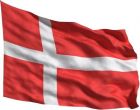 |
No fees for national and EU full-time students. All students studying in part-time courses pay fees set by higher education institutions. International students pay fees set by higher education institutions. |
Denmark 2015/16 - student fees and grants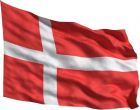 | No fees for national and EU full-time students. All students studying in part-time courses pay fees set by higher education institutions, with a minimum of EUR 268. International students pay fees set by higher education institutions. |
Denmark 2016/17 - student fees and grants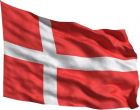 | No fees for national and EU full-time students.
All students studying in part-time courses pay fees set by higher education institutions, with a minimum of EUR 269. International students pay fees set by higher education institutions. |
England 2013/14 - student fees and grants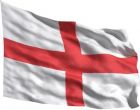 |
1st cycle full-time – fees are set by institutions but capped at a maximum of GBP 9 000 for institutions with an approved access plan (to
safeguard fair access for low income and other under-represented groups) and GBP 6 000 for institutions without an access plan. The
average for 2012/13 was GBP 8 385. Students are not required to pay up front and can apply for a loan to cover the full fee. Repayments
are income-contingent and made at the rate of 9 % of income above the threshold of GBP 21 000. These fees apply to students from all
parts of the UK and from the EU but for students from Wales can be offset by a fee grant from the Welsh Government.
1st cycle part-time – fees are set by institutions but capped at GBP 6 750. Students are not required to pay up front and can apply for a loan to cover the full fee. Repayments as for full-time students. 2nd cycle – fees are unregulated. The ‘most common’ fee (GBP 3 900) represents an indicative amount for doctoral research programmes (which may incorporate masters level study) set by the Research Councils and used as a guide by many institutions. Actual fees charged vary widely, particularly for taught programmes. 1st and 2nd cycle international students – fees are unregulated. |
England 2015/16 - student fees and grants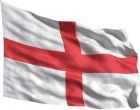 | 1st cycle full-time – fees are set by institutions and capped at GBP 9 000 for institutions with an approved access plan (to safeguard fair access for low income and other under-represented groups) and GBP 6 000 for institutions without an access plan. The average fee for 2014/15 was GBP 8 601 before fee waivers (discounts offered by institutions) and GBP 8 448 after fee waivers. Students are not required to pay up front and can apply for a loan to cover the full fee. Repayments are income-contingent and are set at 9 % of earnings above the threshold of GBP 21 000; interest rates are Retail Price Index plus 3 %. 1st cycle part-time – fees are set by institutions and capped at GBP 6 750. Students studying a course of at least 25 % intensity are not required to pay up front and can apply for a loan to cover the full fee. Repayments as for full-time students. 2nd cycle – fees are unregulated and vary widely. The ‘most common’ shown (GBP 4 052) represents an indicative fee level for research students in 2014/15 set by Research Councils UK. For 1st and 2nd cycle international students fees are unregulated. |
England 2016/17 - student fees and grants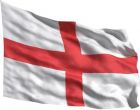 | 1st cycle full-time programme fees are set by institutions and capped at GBP 9 000 for public higher education
institutions. The average fee for 2015/16 was GBP 8 703 before fee waivers offered by institutions, and GBP 8 636
after fee waivers. Students are not required to pay up front and can apply for a loan to cover the full fee. First cycle
part-time programme fees are set by institutions and capped at GBP 6 750.
2nd cycle programme fees are unregulated and vary widely. The 'most common' shown (GBP 4 121) represents an indicative fee level for research students in 2016/17 set by Research Councils UK. Short cycle programme students pay the same fees as students in 1st cycle programmes. For the 1st and 2nd cycle international students, fees are unregulated. |
Estonia 2013/14 - student fees and grants |
From 2013/14 enrolment higher education institutions (HEIs) in both cycles have the right to charge study fees under certain conditions. All students who manage to achieve 30 ECTS per semester and 60 ECTS per year in Estonian language curriculum can study without any fees. If student receives 29 ECTS per semester, HEIs have the right (not obligation) to charge him/her for each ECTS. In other words, any ECTS missing from 100 % study load can be charged. Study fees are regulated by the Government. Maximum cost of one ECTS is EUR 50. Exceptions are made in arts, medicine, veterinary, dentistry (EUR 100) and aircraft piloting (EUR 120). Fees are not regulated for students studying in other language, for part-time students and for HEIs that do not receive state funding (private institutions). |
Estonia 2015/16 - student fees and grants | Since 2013/14 higher education institutions (HEIs) have the right to charge study fees under certain conditions in both cycles. All full-time students who achieve 30 ECTS per semester and 60 ECTS per year in the Estonian language curriculum can study without paying any fees. If a student receives fewer credits, HEIs have the right to charge for any ECTS missing from a 100 % study load. The maximum cost of one ECTS is EUR 50. Exceptions are made in arts, medicine, veterinary, dentistry (EUR 100) and in aircraft piloting (EUR 120). HEIs thus have the right to demand compensation of study costs from part-time students or students studying in other languages than Estonian. Exceptions are made for certain groups of students including disabled students, students who are parents or guardians of a child under the age of 7, and parents of a disabled child. All students enrolled before 2013/14 can continue to study according to the previous state-commissioned studyplace system until 2015/16. |
Estonia 2016/17 - student fees and grants | All full-time students who achieve 30 ECTS per semester and 60 ECTS per year in the Estonian language
curriculum can study without paying any fees. Higher education institutions (HEIs) have the right to charge study
fees on 1st or 2nd cycle students who obtain fewer credits – on any ECTS missing from a 100 % study load. The
maximum cost of one ECTS is EUR 50. Higher fees are made in arts, medicine, veterinary, dentistry (EUR 100)
and in aircraft piloting (EUR 120). Exceptions are made for certain groups of students including disabled students,
students who are parents or guardians of a child under the age of 7, and parents of a disabled child.
There is no short cycle programme in higher education institutions in Estonia. HEIs have the right to demand compensation of study costs from part-time students or students studying in other languages than Estonian. 93 % of part time students pay fees. The same fees apply to international students (non-EU/EEA) as to national students. |
Finland 2013/14 - student fees and grants | No student fees.
In selected English-language Master's degree programmes, the Finnish higher education institutions can charge tuition fees from non-EU/EEA nationals during the ongoing trial period (2010-2014). |
Finland 2015/16 - student fees and grants | No student fees.
|
Finland 2016/17 - student fees and grants | No student fees.
Citizens of non-EU/EEA countries are liable to annual fees of at least EUR 1 500. There are no short cycle higher education programmes. |
Former Yugoslav Republic of Macedonia 2016/17 - student fees and grants | All students pay fees in public higher education.
In the first cycle, the annual fee ranges from MKD 6 150 to MKD 24 600, depending on the study profile. The most common fee is MKD 12 300. Exemptions or reductions are made for students with disabilities (first and second degree of disability), and orphans. Fees in the second cycle are between MKD 36 900 and 194 000 per year, depending on the study profile. The most common fee for second cycle is 123 000 per year. Annual fees for short cycle programmes range from MKD 6 150 to MKD 24 600, depending on the study profile. The most common fee is MKD 12 300. Exemptions or reductions are made for students with disabilities (first and second degree of disability), and orphans. International students pay higher fees – between MKD 123 390 and 185 000 per year – regardless of the study cycle. The fees are defined by the respective universities. |
France 2013/14 - student fees and grants |
The amount of fees per year fixed by the Ministry of Higher Education and Research is EUR 183 in the first cycle (L1, L2, L3) and EUR 254 in the second cycle (M1, M2). However, a number of universities have decided to add associated costs related to specific services (e.g. for diplomas related to continuing learning and training). In some public universities, the tuition fees can reach more than EUR 2 000 per year.
Fees in the grandes écoles and Engineering Schools vary, but the most common amount is EUR 550 per year. However, tuition fees in some of them reach up to EUR 10 000 per year, depending on family income. However, there are grandes écoles which not only deliver education free of charge, but may even pay some students (such students are prospective civil servants and receive a wage from the State), e.g. in école polytechnique and écoles normales supérieures. Students who receive a grant (34.7 % of the student population in 2012/13) are exempted from fees. |
France 2015/16 - student fees and grants | The amount of fees per year fixed by the Ministry of Higher Education and Research is EUR 184 in the first cycle (L1, L2, L3) and EUR 256 in the second cycle (M1, M2). In addition fees of EUR 215 per year, irrespective of the cycle of studies, are charged to all students aged 20-28. These fees are related to the social security system. A number of universities have decided to add associated costs related to specific services (e.g. for diplomas related to continuing learning and training). In some public universities, depending on the type of studies and the qualifications acquired, the fees can reach more than EUR 2 000 per year. Fees in the grandes écoles and engineering schools vary, but the most common amount is EUR 600 per year – not including fees related to social security and partnerships with universities. Tuition fees in some institutions reach up to EUR 10 000 per year, depending on family income. However, there are also grandes écoles which not only deliver education without charging fees, but may even pay some students (such students are prospective civil servants and receive a wage from the State), e.g. in école polytechnique and écoles normales supérieures. Students who receive a grant (34.7 % of the student population in 2014/15) are exempted from fees. Non-EU students pay the same fees as those from within the EU. |
France 2016/17 - student fees and grants | The amount of annual fee fixed by the Ministry of Higher Education and Research is EUR 184 in higher education
short cycle and first cycle (L1, L2, L3) and EUR 256 in the second cycle (M1, M2). In addition, a fee of EUR 215
per year is charged to all students aged 20-28. These fees are related to the social security system. Some
universities add associated costs related to specific services (e.g. for diplomas related to continuing learning and
training).The fees can reach more than EUR 2 000 per year.
Fees in the grandes écoles and engineering schools vary, but the most common amount is EUR 610 per year – not including fees related to social security (EUR 215) and partnerships with universities. Tuition fees in some institutions reach up to EUR 10 000 per year, depending on family income. However, there are also grandes écoles which not only deliver education without charging fees, but may even pay some students (such students are prospective civil servants and receive a wage from the State), e.g. in école polytechnique and écoles normales supérieures. Students who receive a grant (35.8 % of the student population in 2014/15) are exempted from fees. Non-EU students pay the same fees as those from within the EU. |
Germany 2013/14 - student fees and grants |
In 15 of the 16 German Länder studying is free of charge (Bavaria decided that fees are not in force as of winter semester 2013/14). Only in Lower Saxony students have to pay fees of maximum EUR 1 000 per academic year, which is defined by law. Only administrative charges are paid by all students. When exceeding the regular study period, students may be liable to pay fees even in those Länder that do not charge fees. Students can be exempt based on need- or merit-based criteria. Different fees may be charged to students from outside the EU and EEA countries. |
Germany 2015/16 - student fees and grants | In all of the German Länder, studying is free of charge for both full-time and part-time students. Lower Saxony was the last land to give up tuition fees, which it did in 2014/15. In the majority of Länder, low administrative fees are charged to all students. Students in five Länder are liable to pay fees when exceeding the regular study period. Students from outside the EU and EEA countries also do not pay fees. |
Germany 2016/17 - student fees and grants | In all German Länder, studying is free of charge for both full-time and part-time students. In 10 Länder, low administrative
fees are charged to all students.
Students in five Länder are liable to pay fees of EUR 500 (in Saarland, up to EUR 400) per semester when exceeding the regular study period. No HEI has actually done so. There is no short cycle higher education programme in Germany. Students from outside the EU and EEA countries do not pay fees either. |
Greece 2016/17 - student fees and grants | No fees for part-time or full-time students in the 1st cycle. Only students of the Hellenic Open University pay fees,
which range from annual EUR 550 (maximum 3 courses per year) to EUR 1 650.
2nd cycle students pay fees, specified by higher education institutions. In few 2nd cycle programmes, students do not pay fees. Fees for short cycle higher education programmes are set by individual higher education institutions. International (non-EU) students do not pay fees for their 1st cycle studies. |
Hungary 2013/14 - student fees and grants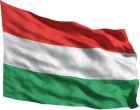 | Higher education institutions (HEIs) specify the amount of fees in accordance with a government decree.
Fees are charged to students without a state-funded place. State-funded places are awarded to students on the basis of their performance in the admission procedure. [2012: 57 % of places were state-funded.] The fees range from HUF 230 000 to 1 600 000 in 1st cycle and from HUF 450 000 to 1 900 000 in 2nd cycle. The fees are between HUF 300 000 and 2 700 000 in undivided long programmes. Best-performing students with non-state-funded status can obtain state-funded status during their studies. On the other hand, state-funded students who exceed the prescribed period of study or do not obtain at least 50 % of the prescribed number of credits and the marks determined by the HEI lose their state-funded status. International students pay the same amount of fees as non-state-funded students. |
Hungary 2015/16 - student fees and grants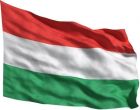 | There are two basic types of financial statuses for students: state-funded and self-financed. Higher education institutions (HEIs) stipulate the amount of fees per semester for each programme based on costs and in accordance with a government decree providing a minimum and a maximum fee for the different levels and fields of study. Fees are charged to self-financing students. State-funded places are awarded through a centralised admissions procedure to students on the basis of their academic performance with preferment to disadvantaged students and students with disabilities. In 2014, 63 % of places were state-funded. The fees range from HUF 230 000 to 1 600 000 in the 1st cycle and from HUF 450 000 to 1 900 000 in the 2nd cycle. The fees are between HUF 300 000 and 2 700 000 in undivided master programmes. |
Hungary 2016/17 - student fees and grants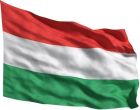 | There are two basic types of financial status for students: state-funded students do not pay fees, and self-financed
students do. State-funded places, available for both full- and part-time students, are awarded through a centralised
admissions procedure primarily based on academic performance but where some weight is given to disadvantaged
and disabled students. In 2015, 64.7 % of students were state-funded.
Higher education institutions (HEIs) set fees for self-financed students for the different levels and fields of study. Fees range from HUF 230 000 to 4 400 000 in the 1st cycle and from HUF 300 000 to 3 300 000 in the 2nd cycle. The fees are between HUF 300 000 and 2 700 000 in undivided master programmes. The fees vary from HUF 140 000 to HUF 400 000 for short cycle programmes. All international (non-EU/EEA) students pay fees. Information is not available on fee-ranges. |
Iceland 2013/14 - student fees and grants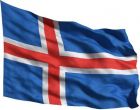 | All students at public higher education institutions pay administrative registration fee of ISK 60 000 per
academic year. Over 80 % of students at 1st and 2nd cycle study at public higher education institutions.
Government dependent private higher education institutions charge a tuition fee that covers registration costs and teaching. The fee is around ISK 175-400 000 per academic year. The same rules apply to international students. |
Iceland 2015/16 - student fees and grants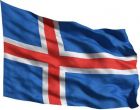 | All students at public higher education institutions pay administrative registration fee of ISK 75 000 per academic year. Over 80 % of students at 1st and 2nd cycle study at public higher education institutions. The same rules apply to international students. |